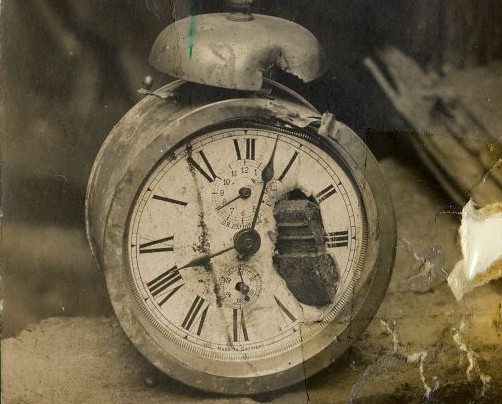The chances are that the year has ended with so much left unfulfilled. Not to mention all the mistakes made that cannot be unmade, moments lost that cannot be regained, hearts broken beyond repair. Why else do we hurry to get ourself in a drunken stupor on New Year’s Eve? Perhaps so that we can forget the sadness felt for all that has been lost in the passing of the year?
But what if instead of losing ourselves in the false happiness of a drunken rave we immersed out thoughts in the nightly vision of a dead year by way of a prayer or a poem? I have in mind the Nunc Dimittis and Gabriel Okara’s poem titled “New Year’s Eve Midnight.”
The Nunc Dimittis is an excerpt from the Gospel and is sometimes sung, after the communion has been taken, to mark the end of the church service. When the baby Jesus was brought to the old man Simeon, he thanked God for fulfilling his promise to allow Simeon see the birth of the messiah before the end of his life. “Lord, now you let your servant go in peace,” Simeon sings, “Your word has been fulfilled.” Having seen the fulfillment of God’s promise of salvation for all mankind, Simeon thought he could now die in peace. The Nunc Dimittis is a song in praise of that beautiful moment when a departure—the end of Simeon’s life—coincides with the arrival of something great and longed for—the birth of Christ. It is also a commentary on that kind of death that gives place to something new and that is therefore easy to bear. The Nunc Dimittis is a song about being reconciled with loss on the basis of a beautiful vision of what the future brings.
In one of the most beautiful elegies on Time I’ve ever read, the Nigerian poet, Gabriel Okara evokes the Nunc Dimittis, but does something strange to it. He writes in the first stanza of “New Year’s Eve Midnight:”
Now the bells are tolling —
a year is dead.
And my heart is slowly beating
the Nunc Dimittis
to all my hopes and mute
yearnings of a new year.
And ghosts hover round
dream beyond dream.
Unlike Simeon, the speaker in the poem is sad. His “slowly beating” heart sings the Nunc Dimitis—a parting song— to the unfulfilled hopes and mute yearnings from the old year. He wants to say to these hopes and yearnings what Simeon says to God: “you let your servant go in peace,” but he can’t because the dead year has refused to stay dead and buried. “A year is dead” but not in peace. Like a ghost, the shadow of the dead year lingers and “hovers round” his dreams of what the new year might bring.
The arrival of a thing longed for is enigmatic in Okara in a way that it isn’t in the Nunc Dimittis. Even before the new year arrives it is already in the company of the ghosts of years past. There is no such thing as pure arrival for Okara. Every arrival retains something of what is supposed to have departed. Also where Simeon sees—and takes comfort in—visions of salvation heralded by Christ’s birth, the speaker in Okara’s poem sees in the future only “shrouded things.” “My heart-bell is ringing in a dawn,” he says, “but it’s shrouded things I see.”
The coming year stands before him as something concealed in the funereal cloth—a shroud—used to cover a corpse. Instead of comfort, we sense disquiet in Okara’s poem. We feel the sadness of inhabiting that strange space in time where the future is blurred because the New Year arrives as a thing enshrouded in the ghostly shadows of dead years.
Simeon’s song is radiant with joy and gratitude for the ending of a life that marks the beginning of another. Okara’s poem is dark and unsettling. But this is because Okara gives a more accurate account of time. Unlike Simeon, Okara wants us to understand that the past never disappears in peace just as the future never really arrives in the radiance of revelation.
Okara’s philosophy of time is a kind of necromancy. If tomorrow, the New Year, the future is never entirely new but carries with it the remains of the old year that is supposed to have died, perhaps the demand that time makes on us is to seek and hold on to that part of the future that is inhabited by things enshrouded in the mystery of death. Perhaps what is novel about the New Year is that it is already dead. The “happy” in Happy New Year is the happiness of the mourner who alone can see the beauty in the liveliness of undead time.
Read what I had to say about the same poem one year ago. HERE.









COMMENTS -
Reader Interactions